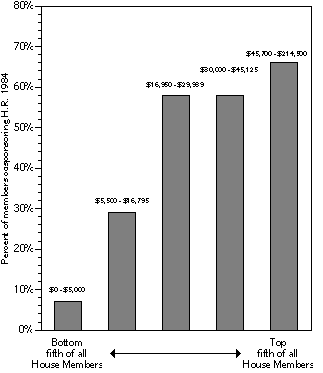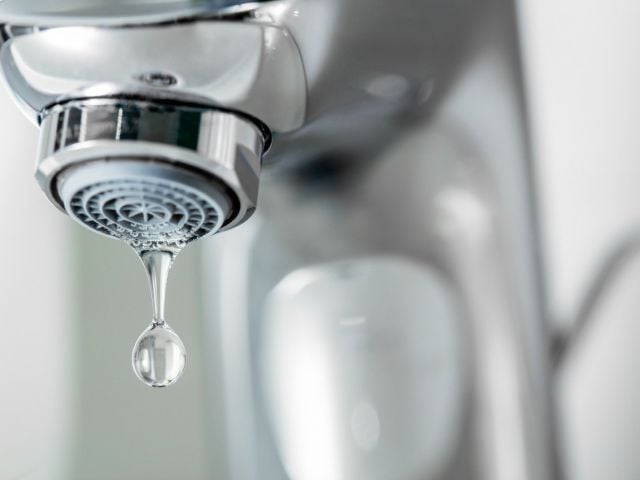Washington, October 21, 1997 - What influences a member of Congress more, political contributions, or toxic air pollution that threatens the health and lives of his or her constituents? An analysis of campaign contributions and air pollution data released today by the Environmental Working Group concludes that too many politicians side with their contributors and against their constituents on air pollution, even in metropolitan areas where air pollution prematurely ends thousands of lives each year.
Industry groups that lost their battle to kill the rules in the White House in July have poured millions of dollars in campaign gifts into the House of Representatives, and the investment is paying off, the study shows.
A total of 192 House members support legislation (H.R. 1984) to delay new clean air standards for at least four years, although postponing pollution control will prematurely shorten the lives of tens of thousands of Americans. Campaign gifts from big air polluters were nearly three times greater for cosponsors of the anti-clean air bill than contributions to House members who did not cosponsor the bill.
The report, Last Gasp: Can Polluters buy Congress in the Clean Air Fight? for the first time shows that money is an excellent predictor of a politician's position on clean air, but the health consequences of that pollution to his or her constituents, is not. The report found that:
- Political Action Committees (PACs) of 133 major companies that will have to control pollution under the new standards contributed $12.2 million to members of the U.S. House of Representatives since January, 1995.
- The more money a House member receives from major air polluters, the more likely that politician is to support anti-clean air legislation. Among House members who received the most polluter PAC money (the top fifth of recipients) twoÐthirds (66 percent) support legislation to delay the standards. By comparison, of the House members who received the smallest contributions from polluter PACs (bottom fifth of recipients), only 7 percent supported the industry proposal to delay the clean air rules (See Figure).
- In contrast to PAC money, the number of constituents whose lives are threatened by pollution is a fairly poor indicator of a House politician's stance on clean air. Members from heavily polluted areas cosponsor the bill at the same rate as members from unpolluted areas.
"Corporate opponents of the rule want to avoid spending a fraction of their profits to cut deadly pollution that prematurely ends thousands of lives every year," said Ken Cook, President of the Environmental Working Group. "The report identifies members who not only took the polluters' money, but signed onto a bill that in some cases will directly harm thousands of their own constituents."
The more money a member of Congress receives from big air polluters, the more likely he or she is to oppose new air quality standards.

Note: Each of the 5 bars represents 83 members of the House who take PAC contributions. Anti-clean air PAC contributors include the 133 members of the Air Quality Standards Coalition for which data were available.
Source: Environmental Working Group. Compiled from Federal Election Commission data, October 1997 release.
The report concludes that members of Congress should support timely implementation of the new clean air standards.
The Environmental Working Group is a nonprofit environmental research organization based in Washington, D.C.



